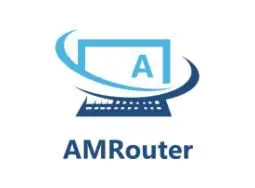Introduction
There are numerous options for business routers on the market. As a result, determining which router is best for small businesses can be difficult. This article will go over seven of the best WiFi small business router available on the market. We will discuss their features, Pros, and Cons. We will also respond to some questions about the best business routers. You should have a good idea of which router is best for your business by the end of this article!
A router is required to connect multiple networks and transport data between them quickly, effectively, and reliably, whether you own a small legal office or a neighborhood coffee shop.
In recent years, the quality of routers has improved, and there are now numerous fast dual- and triple-band routers that support multiple networks, which is useful if you own a business where customers and employees must connect to different networks (like in a restaurant or retail shop).
The level of security, whether the router can create a Verified Private Network (VPN), and the size of the area the router must cover are all important considerations (a small office might need to have more coverage than, say, a cafe).
While looking for the best small business router for your needs, you don’t have to worry about it being able to manage a large amount of network traffic. You will, however, need something with enough capacity to manage multiple users and devices constantly accessing the network.
Modern routers frequently provide dual or even triple-band connectivity, in addition to a slew of other features found on much more expensive enterprise-grade devices but available at a much lower cost. Some even allow you to create your own cloud storage, which is adequate for the majority of SMBs but not a viable substitute for one of our top cloud storage providers.
The best small business routers should be simple to install, use, and maintain. As a result, smaller businesses will not need to hire a full-time administrator or IT team. The user interface on a PC or mobile device will make it simple to access all of the powerful features included in this list of the best small business routers.
We carefully selected and compared each of the top small business routers on this list based on factors other than speed, cost, or QoS features that are more important to business users, such as security, support, remote access, business VPN, WAN redundancy, connectivity options, and scalability.
You can also check our reviews on Best Wired Router for small business.
Best Small Business Router 2023
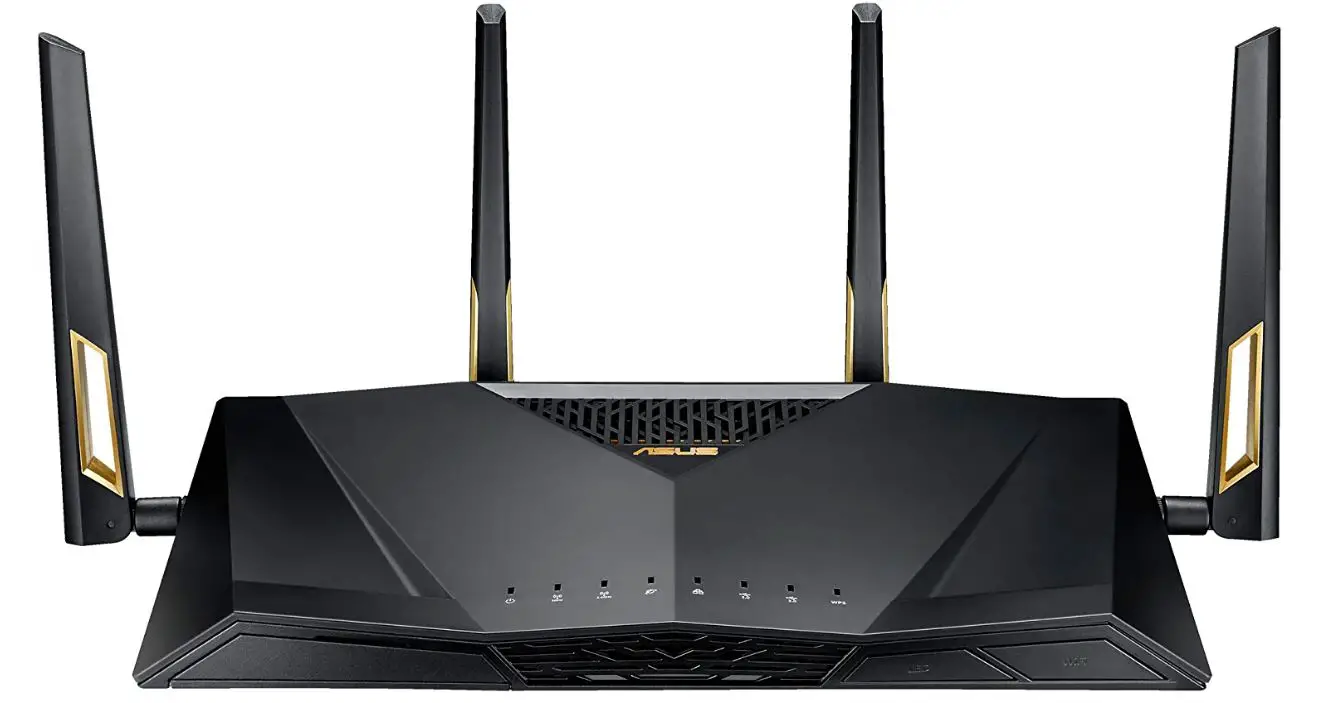
Asus RT-AX88U Router for Small Business
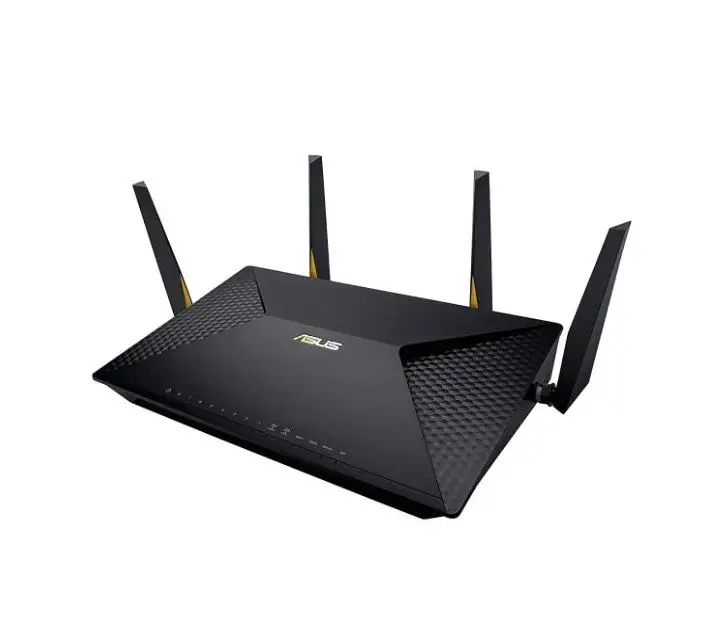
Asus BRT-AC828 router
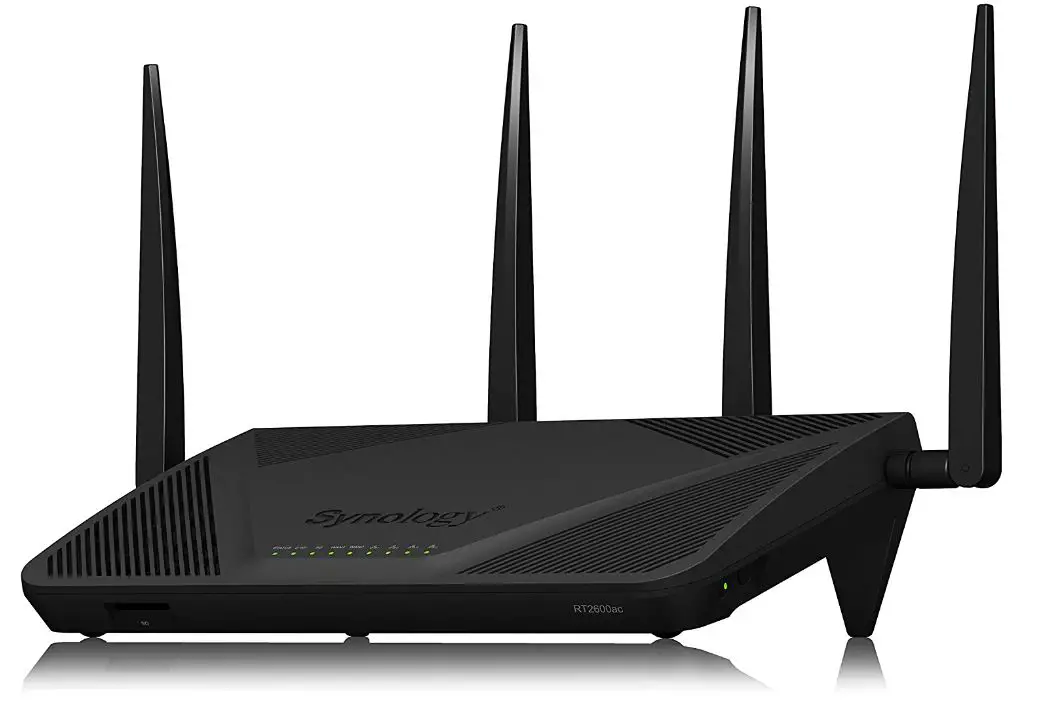
Synology RT2600ac WiFi Router
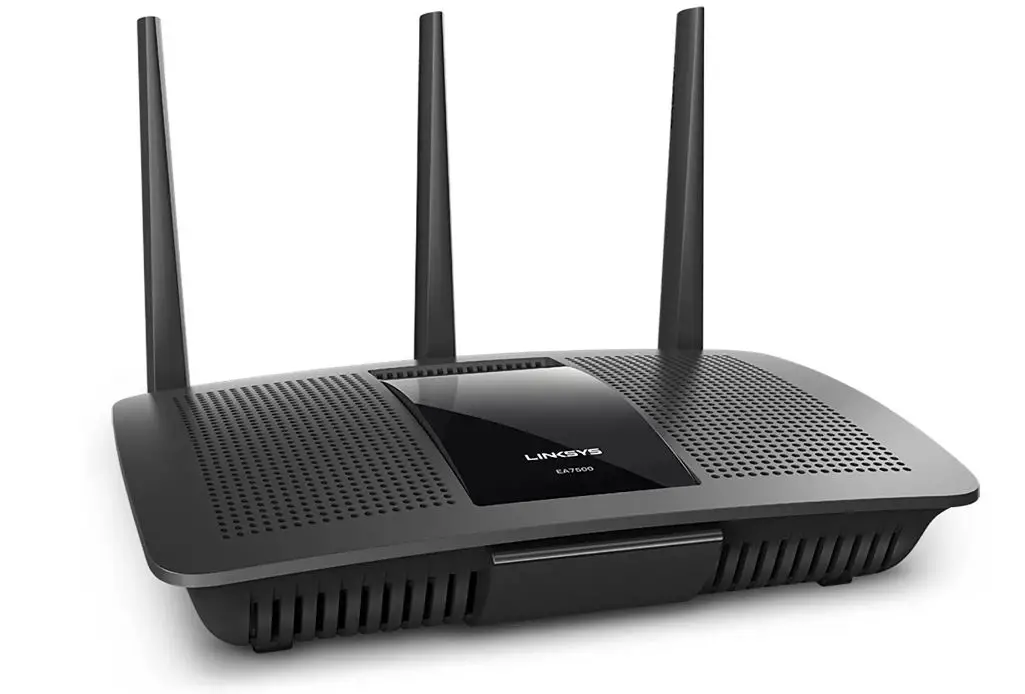
Linksys EA7500 Small Business Router
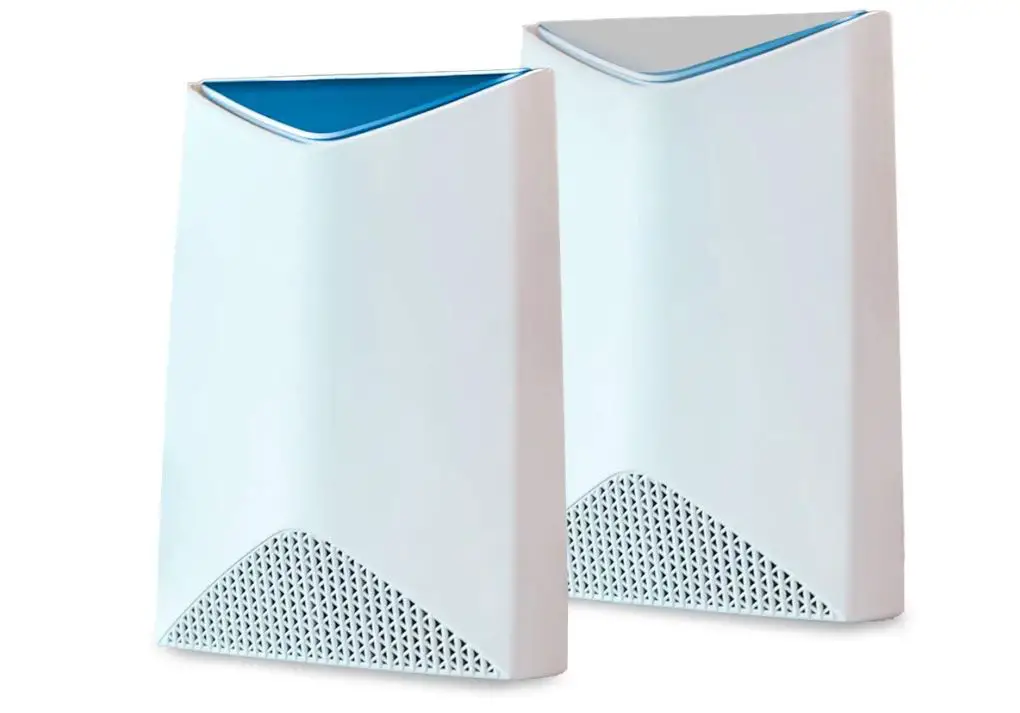
Netgear Orbi SRK60 WiFi Router for Small Business
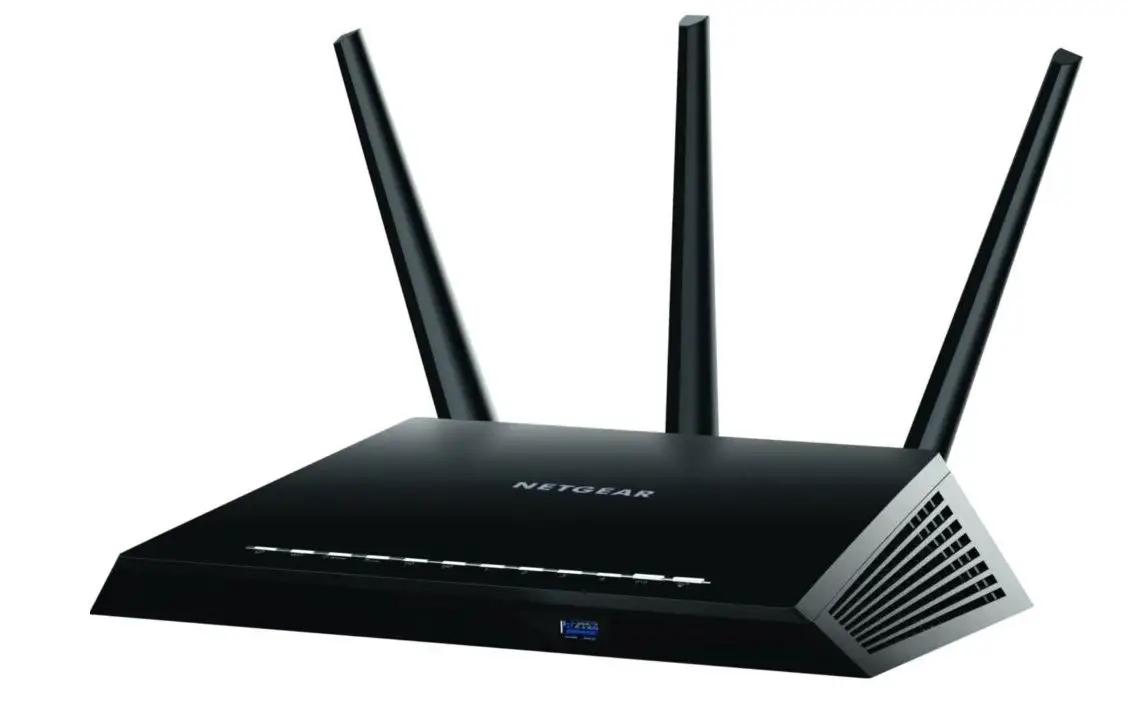
Netgear Nighthawk X4S Small Business Router
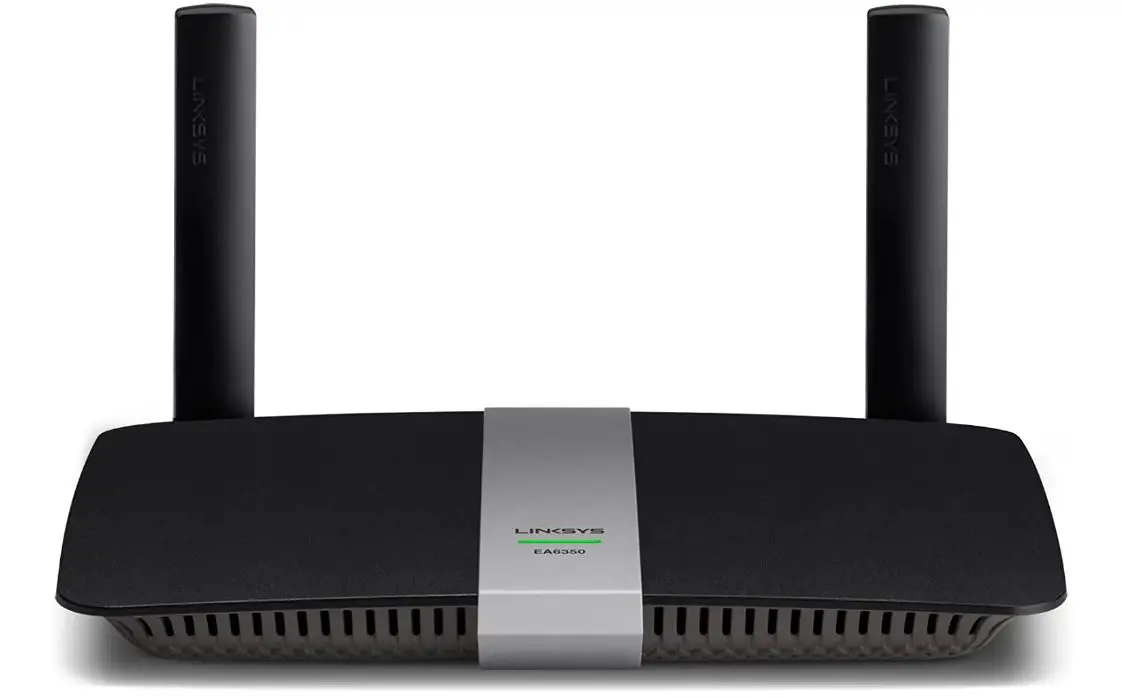
Linksys EA6350 Router

The Asus RT-AX88U is a small business router with all the features you could want, including WiFi 6.
It’s also one of the best small business routers money can buy right now because it does so much while being on the lower end of the WiFi 6 router price range.
This router has 8 LAN ports, which is useful for small businesses. With twice the capacity of most other routers, the RT-AX88U can save you money on an Ethernet switch.
The RT-sophisticated AX88U’s web software and a companion mobile app both display connected clients, USB devices, and security status.
There are also settings to optimize guest networking, examine traffic, and change options for a more enjoyable gaming experience.

Asus is well-known for manufacturing high-quality consumer goods, and the Taiwanese company, best known for its motherboards and laptops, has been experimenting with wireless items.
Its sole business router, the BRT-AC828 (opens in new tab), ticks a lot of boxes, even for small businesses that need more than ten simultaneous connections.
Despite its high price, it has features you wouldn’t expect in a router, such as an M.2 slot for an SSD that transforms it into a mini-NAS.
There are numerous additional features, including RADIUS support, the ability to combine four 1Gb Ethernet ports into a virtual 4Gb port, and even support for LTE as a backup connection to increase resilience. The router currently has two 1Gbps WAN ports that can be used together or separately.
As you would expect from a top-tier router, it supports 44 MU-MIMO and theoretical speeds of up to 2.6Gbps, with open plan coverage of up to 100m (albeit on the 2.4GHz band).
AIProtection, Asus, and Trend Micro’s built-in security suite are now available.

The Synology RT2600ac (opens in new tab) is the result of combining a typical wireless router with a network-attached storage device, or NAS (well, it gives you a bit more besides, too).
Although it lacks the most powerful specs or even a conventionally appealing shell, the RT2600ac packs a slew of features (such as a built-in VPN and the ability to aggregate two WAN ports) that make it a worthwhile purchase. The company’s most well-known product is its NAS boxes.
Despite the fact that it only has 4GB of built-in storage, you can connect an external hard drive and create your own cloud service similar to Microsoft OneDrive or Google Drive.
Even NAS-grade applications, such as a VPN client and server, are free.
Unfortunately, there aren’t many apps available right now, and the ecosystem could benefit from more community involvement. Hopefully, this will change over time.
Despite its more complicated functions and a less-than-perfect setup procedure, the Synology RT2600ac is far more user-friendly than most NAS devices.
Although there are some issues with this router, keep in mind that this is only Synology’s second attempt at developing its own router.

The Linksys EA7500 small business router is a low-cost networking option that is ideal for most local small businesses.
Linksys’ overall user-friendliness and methodical approach to installation particularly impressed us.
You don’t need to spend hours configuring each configuration; simply plug the router in, turn it on, and connect it to a computer.
The overall performance of the Linksys EA7500 router also impressed us.
With this reasonable option, you will receive dual-band capabilities, giving you more flexibility in the bands that your devices can connect to.
Fortunately, both the 2.4GHz and 5GHz bands perform admirably, with fast data rates and extensive coverage.
You’ll be relieved to learn that there are numerous network management settings available, such as parental controls and Quality of Service options.
The parental controls provided by the EA7500 are still adequate for a start, though not as comprehensive as some other solutions.

The Netgear Orbi SRK60, also known as the Orbi Pro, is another mesh wireless router that uses a central unit that connects to a number of satellite units to generate a broad network coverage that can cover an area of up to 5,000 total square feet.
This makes it an excellent choice for large offices or shops where internet access is required everywhere.
It is also designed to be simple to use and install.
The Orbi system uses a smartphone app to guide you through setup, but it is more difficult than with other routers, especially when some of the more technical requirements are considered.
The Netgear Orbi Pro, on the other hand, is quite potent.
You can connect your wireless devices to the three distinct channels of the tri-band router.
This gives you more flexibility to prioritize certain devices over others and even allows you to set up a guest network for your clients.
The Orbi mesh router can also achieve rates of up to 3 Gbps, ensuring that you always get the best bandwidth from your ISP.
Complete your business setup with the best conference room webcams.set up

The Netgear Nighthawk X4S small business router is an excellent choice for small business owners with large spaces that require an internet connection all around.
Dual-band capabilities on the 2.4GHz and 5GHz bands are available here.
With this type of dual functionality, you can prioritize the most important devices on the 5GHz band, resulting in the highest throughput and overall performance.
This is ideal for larger office spaces because both bands sound good from a long distance.
Furthermore, the Netgear Nighthawk X4S excels at providing strong performance for a variety of devices.
Because of the router’s excellent MU-MIMO capabilities, you will be able to connect up to 45 devices at once without experiencing service outages or disconnections.
The X4S also has a plethora of customization options, and changing these settings is a breeze.

Because it provides a good balance of features and functionality at a reasonable price, the Linksys EA6350 is the best inexpensive small business router.
To begin, the EA6350 is a dual-band router, allowing you to connect to both the 2.4GHz and 5GHz bands.
This router’s 5GHz performance, which is faster and more reliable than its price suggests, most impressed us.
We were also impressed by the router’s modest simplicity.
Because it is so strong and small, you can practically put it anywhere in your office without it getting in the way.
Keep in mind that the device has two adjustable antennas that are not removable when deciding where to install them.
In terms of setup, the Linksys EA6350 is remarkably simple to set up and use, even for those who aren’t as tech-savvy.
Overall, the EA6350 is the best option if you need to save money on networking hardware.
Buying Guide for the Best WiFi Router for Small Business
The first step in selecting the best small business routers should be to assess the size of your office. If you have a large workplace, a wide-range router will be useful.
Examine the number of internet-connected devices in your home. Consider your smart speakers, TVs, lights, and other appliances that require an internet connection to function.
A mesh router will provide better connectivity if your office building is large and has multiple floors.
Consider the router’s available speeds, ease of setup, and the availability of a useful companion app.
Before we started comparing small business routers, we had to pause to see if there were any features that small business owners would value more than the average consumer. It can be difficult to determine which of these devices is best suited to each application because many of them blur the line between personal and professional use.
However, after conducting our research, we concluded that the most important characteristics to look for in small business routers were long-term dependability and customization.
You should start by selecting a router that will last for many years. This includes regular firmware updates as well as physical design. Although you want your router to be supported indefinitely, you don’t want it to break after a year. As a result, we awarded bonus points to items with excellent designs that are likely to outlast the competition.
The next topic of discussion was performance, which includes speed, range, and dependability. The most important factor to consider when it comes to speed is whether your small business router matches the speeds provided by your ISP.
However, routers with higher speeds received a higher rating because they are more durable and will continue to function if you decide to increase your ISP plan in the future. Although the range is also affected by your location, we gave extra points to routers that can generate a strong signal over longer distances.
We also considered network security and customization. This is especially important for small business owners. We preferred wireless routers with built-in security features, but alternatives with the ability to specify your own security parameters received high marks. Small business routers also performed better if they had simple menus and interfaces that made it easier for non-techies to configure their networks.
11 Most Important Features to Consider
The Size of Your Business
When selecting a router, consider the size of your company. A small business may be able to get by with a Wi-Fi antenna similar to those found in most laptop computers. Something much more powerful and robust is required for an office building. If you own a small business, you should look for a solution that is less expensive and has fewer features.
The difference in coverage area between WiFi Router for small business
The coverage areas of wireless routers differ. Depending on the type of router and how it is configured, these can range from 300 feet to 1500 feet or more.
In general, the larger the coverage area of a wireless router, the higher it’s quality. You want to ensure that your Wi-Fi signal reaches all areas of your office so that no one feels excluded.
What security features will you require in a small business internet router?
You’re looking for a router that restricts the types of media and other content that can be accessed on your network.
You can also include parental controls, which allow you to keep an eye on what your employees are doing at work. Your employees can easily access anything they want with a wireless connection. These features protect your internet traffic and keep viruses and hackers at bay.
How many devices can connect to a business router at once?
The number of devices that can connect at the same time is typically determined by the router’s bandwidth. You need a router with enough ports and bandwidth to support your number of devices.
You should also ensure that a router can handle any anticipated growth in your business.
How much bandwidth does your small business need?
It is critical to have a Wi-Fi router that can handle all of your devices simultaneously without slowing down.
You’ll want to find something that supports multiple devices and has features like MU-MIMO and beamforming.
If you are unsure of what your small business will require, it is best, to begin with, a router that can handle more than you think. A good starting point is 60% – 80%. A router with a maximum speed of 100Mbps is recommended if your office has two wireless devices that do not stream media or use VOIP services.
The greater the number of devices in your small business, the more bandwidth you will require. If an office has 20 wireless devices, two of which are streaming video or VOIP services, then at least 300 to 400 Mbps is recommended.
How easy it is to manage the Wi-Fi router in your small business?
Look for cloud-based options that can be accessed remotely when needed, rather than having to go on-site every time a change or update is required. If one of your devices fails, you’ll be able to access the router remotely on your computer and repair it from anywhere.
To protect your network from other threats, the router should also include a firewall. If you plan to use the service for remote employees, you’ll need this feature.
How easy it is to set up a Wi-Fi router for small business use?
You’ll want something that’s simple to use and requires only a few steps before you can start using it right away. If there are too many complicated instructions, someone will likely give up and look for another option.
Many good small-business Wi-Fi routers can be set up and configured in less than five minutes. Simply follow the instructions that came with your router, and you should have it up and running in no time.
If you require assistance, contact the manufacturer’s or retailer’s customer service, representatives. Device and hardware setup can be provided by Digital Operating Solutions. Contact us today for any of your needs!
How much bandwidth or speed can your Wi-Fi router handle at once?
If everyone in your office uses a smartphone to stream video all day, you’ll need something more than a standard router. You should look for a high-speed option that can handle all of the traffic without slowing down or causing lag for your users.
This is where the most recent Wi-Fi router technology can help. High-speed routers can transfer data at speeds of up to 1,000 Mbps or more. This means you’ll never have to deal with users complaining about having to wait for media to load.
How much control do you have over who connects to your office wireless network?
If an unsecured device connects to your Wi-Fi, you’ll want to be able to monitor what it can do while on the network.
A wireless router enables you to set up a guest network for visitors and wirelessly connect employees on their own. If your office allows visitors, it’s a good idea to provide this option so they can easily connect to the Wi-Fi without gaining access to the internal network. It also prevents them from consuming bandwidth and slowing down your network.
You can use a router’s guest Wi-Fi to set time limits so that users must log in every few hours or days before their access expires. This does not simply protect you from an unknown person using the network. It also guards against guests accidentally costing you more money.
How often are updates released for a particular router?
The frequency with which a router is updated can vary. Some are updated monthly, while others may not be updated for several years. The frequency is determined by the vendor and router model. Because there is no industry standard, determining how frequently you should expect updates before purchasing one is difficult.
Newer models will have more features, better performance, and longer life spans than older models. If you purchase an outdated model or one with a short lifespan, you will begin to notice issues with your Wi-Fi signal and the router’s features.
What is the cost of WiFi router for small business?
A WiFi Router for small business costs between $200 and $500. The price will be determined by the device’s size, configuration, features, and quality.
Wi-Fi routers come in a variety of shapes and sizes, depending on the needs of the small business. For some businesses, the cost is a deciding factor. Most businesses will choose to invest in a high-quality router rather than a low-cost alternative that will need to be replaced.
FAQs
What is a Wi-Fi router?
A wireless router is an essential component of any Wi-Fi network. It makes no difference how many devices are linked to your home’s Wi-Fi. They will all be useless without a working internet connection.
A router connects your phone, tablet, and other devices to the internet wirelessly. It connects to an electrical outlet and broadcasts the internet signal to the devices that are connected to it.
The best Wi-Fi routers make network management and data access simple by providing a signal that is not lost in interference.
What is the best WiFi router for small business?
The router that meets the needs of your company, employees, and clients is the best option for small businesses. Even if it appears to be a hazy response, it is the one that needs to be heard the most. Routers are available in a variety of sizes and shapes. The one you buy will have speed, range, and adjustability options to meet your needs and vision.
What is the best router for business use?
The best router for business applications offers the ideal balance of speed, range, and customizability, allowing you to create a one-of-a-kind network experience. You’ll be able to do this in such a way that both your employees and customers will be happy whenever they’re around.
How many routers do I need for a small business?
The number of routers required by a small business is entirely dependent on how they will be used. If you and a small group of coworkers are in a limited area, a single wireless router will suffice. However, if your company has multiple sections for customers and employees, you might want to consider getting a mesh router or several routers.
What is a business router?
A business router is networking equipment that is solely used for business purposes. In a small business setting, you may find that the majority of these routers have the same attributes and feature sets as consumer routers. As you use larger commercial routers, you’ll notice more differences between consumer and business equipment.
What is bandwidth?
Bandwidth refers to the specific width of a data transmission channel. It is usually expressed in megabytes per second (Mbps). Higher bandwidth means you can stream or download content more easily and quickly than with lower bandwidth.
The amount of available bandwidth is determined by the number of users connected to the network and the amount of data they are transferring.
Bandwidth is important for small businesses because it affects network speed and quality.
Conclusion
Small businesses are constantly on the lookout for new ways to improve their connectivity and performance. The best small business routers can aid in the smooth operation of your office.
There are a few things to consider when looking for the best router for small businesses. This includes network type, range, speed, security, and so on.
